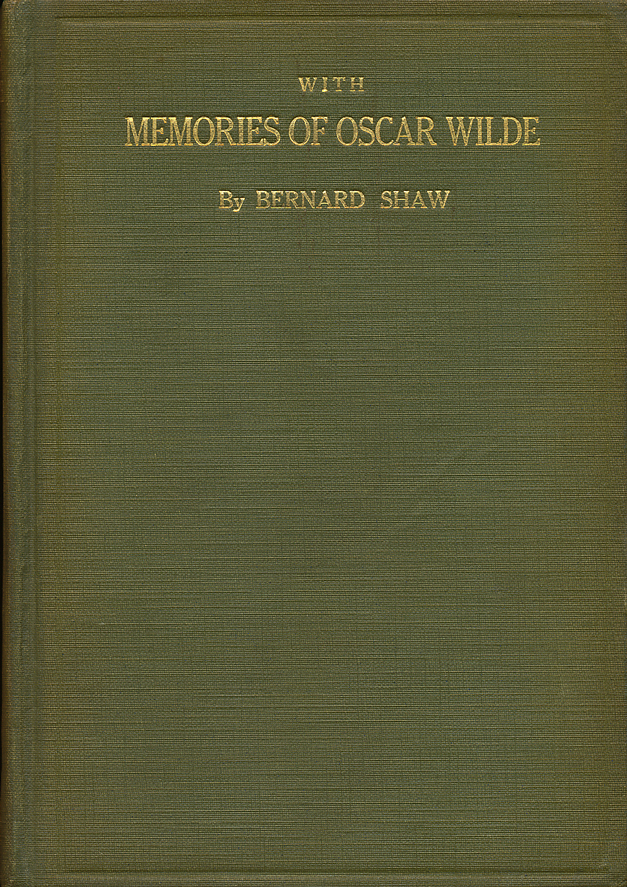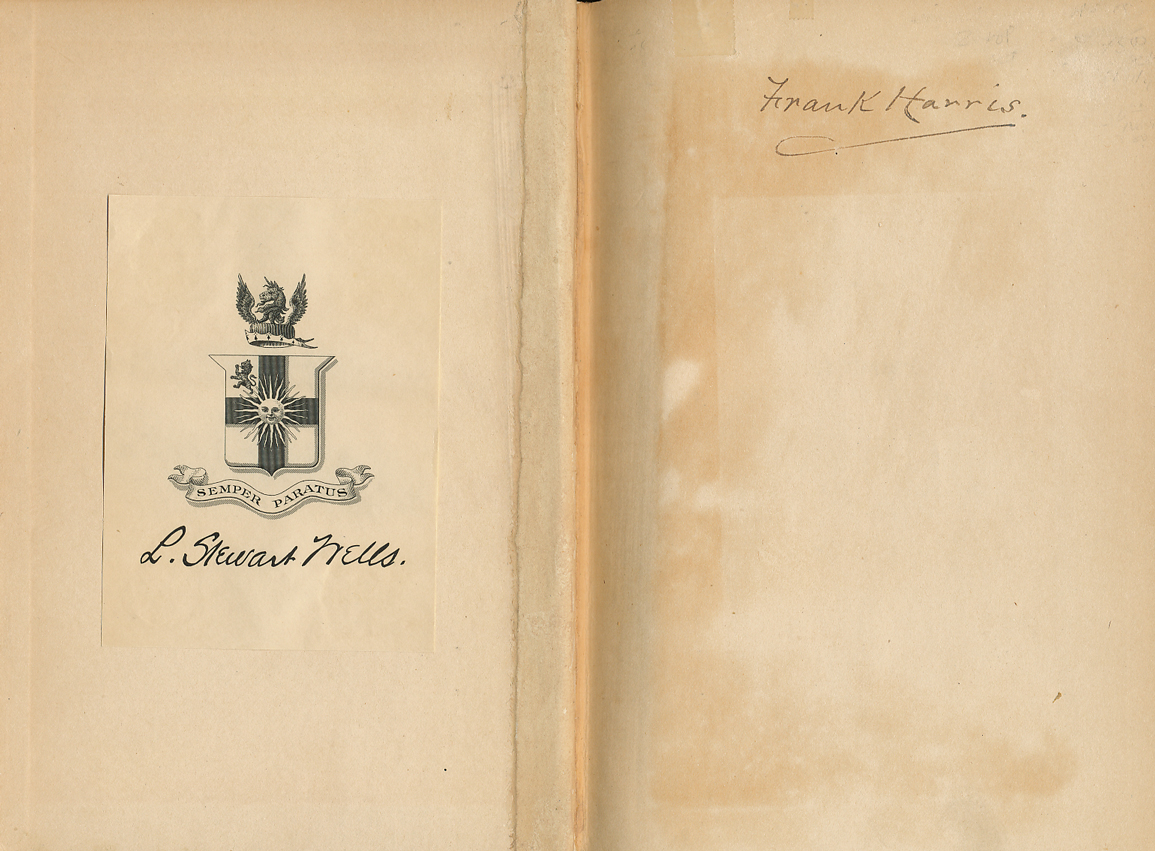Frank Harris
Frank Harris
Frank Harris Signed First Edition of “Oscar Wilde: His Life & Confessions” by Alfred Douglas - 1918
First Edition, First Printing of Frank Harris’s 1918 two-volume biography Oscar Wilde: His Life and Confessions, with an Introduction by George Bernard Shaw titled Memories of Oscar Wilde. Signed by Frank Harris on first free end paper of Volume 1. Published by Author as Stated, New York, 1918. Near fine/No Jacket as issued. First Edition. Signed by Author. 8vo – over 7 3/4 ” – 9 3/4 ” tall. Very clean ink signature by Frank Harris on front end paper, adjacent to previous owner’s bookplate. A very handsome two-volume set bound in green cloth covers with bright, blind-stamped gilt letters on covers. 612 pages plus introduction by George Bernard Shaw. Edges are remarkably fresh, not rubbed at all. Spines are firm and intact; though sun-faded they are still readable. Otherwise a tight, clean, complete copy with crisp and clean pages.
Frank Harris’ well-regarded 1918 biography of Oscar Wilde cannot be read as a simple historical document. Harris frequently invents or embroiders, recasting conversations so that his part in them became more central, placing himself at events where he was not in fact present, and even recounting incidents that never happened at all. However, it would not be fair to discount it entirely. At the time it was written Wilde was regarded as a pariah, yet Harris never swerved from his view that Wilde’s treatment by the public, press and the judiciary had been a monstrous injustice.
The undoubted friendship between Oscar Wilde and Frank Harris is one of the stranger aspects of Harris’ life. They were so unlike: Wilde the wit and aesthete, the darling of fashionable London, Harris playing the loud American, lecturing all within earshot about whatever they would least like to hear. And the fact they were both great talkers would, one might suppose, have led rather to rivalry than friendship. But as outsiders, exiles, perhaps there was a deeper common bond. In both, too, there was an idealistic streak, in Oscar’s case it was beauty that he saw as the key to life, while Harris was an atheistic humanist who yet loved Jesus; if they failed to live up to their ideals then is that not the tragedy of us all?
In the end, Harris was generous to Wilde both in life and to his memory. He did not paint Wilde as a heroic figure, but Wilde was only intermittently heroic. If he did not convey much of Wilde’s wit, that is documented well enough elsewhere, in Wilde’s own works and the oft-told anecdotes of others.
In Frank Harris’s own words:
“There are special reasons…why I should handle this story. Oscar Wilde was a friend of mine for many years: I could not help prizing him to the very end: he was always to me a charming, soul-animating influence. He was dreadfully punished by men utterly his inferiors: ruined, outlawed, persecuted till Death itself came as a deliverance. His sentence impeaches his judges. The whole story is charged with tragic pathos and unforgettable lessons. I have waited for more than ten years hoping that some one would write about him in this spirit and leave me free to do other things, but nothing such as I propose has yet appeared.”
Interestingly, Lord Alfred Douglas (“Bosie”, as Wilde called him) refuted many of the contentions in Harris’s book in a letter dated December 27, 1929, which was later sold at auction by Sotheby’s. Douglas writes:
“…I do not wish to add anything to what I have already said…because the complete malentendu between us is so great that the only thing to remove it is for you to read my book…Harris’s book is a tissue of the most malicious & cunningly devised lies ever invented by a malignant man (or rather two men for Ross helped him to distort the story)…I denied the immoral relations…simply because the conventions of English Society demanded it; and because I was thinking of the feelings of my mother my wife & my son. I was told that if I admitted the truth I would be for ever ruined & ostracised…In my present book I have admitted everything…the truth of my story…is now accepted by everyone, even by my enemies…I think you might search the annals of England in vain to find anyone who has ever admitted this particular vice before I did it myself in my Autobiography. As it happens it has done me no harm at all socially…”



